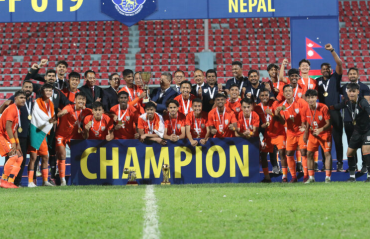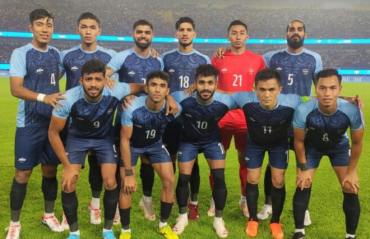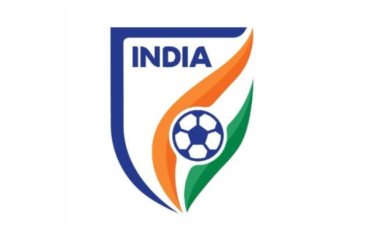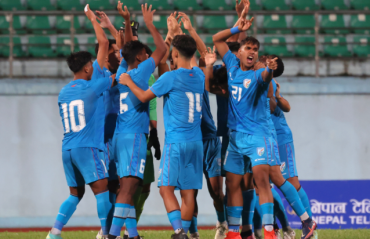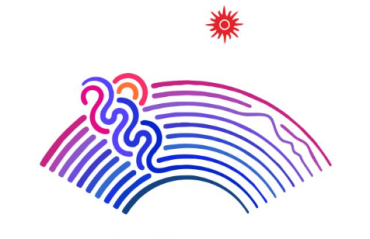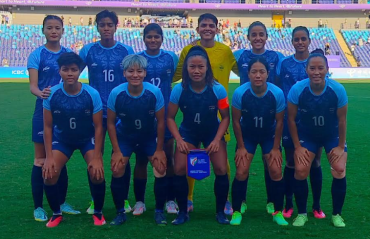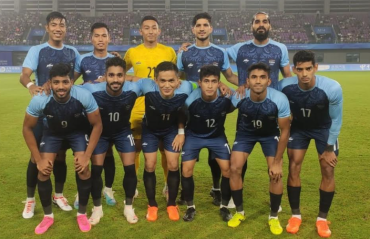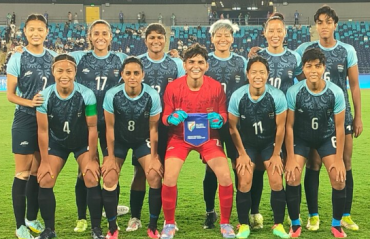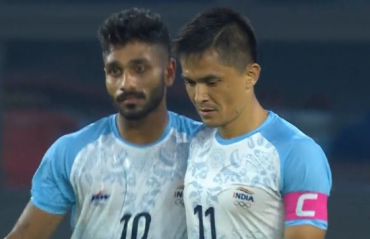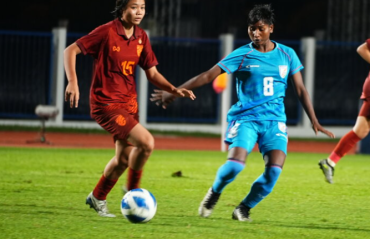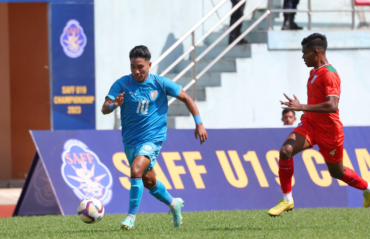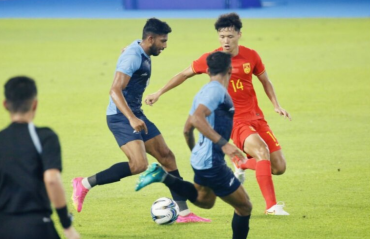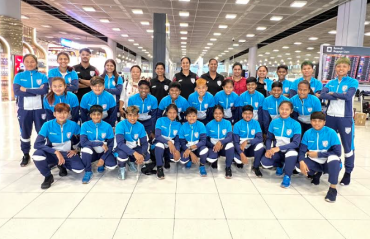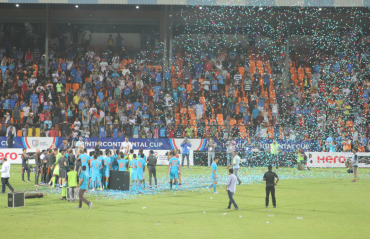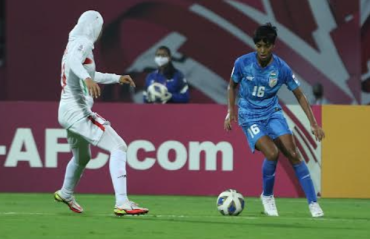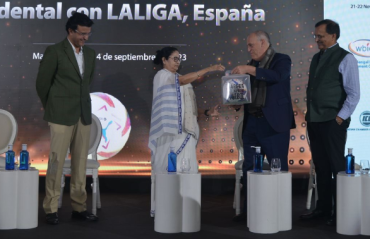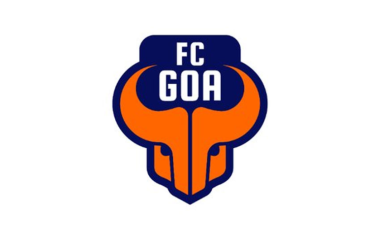EXCLUSIVE - AIFF CoA ignored warnings from FIFA & AFC, broke roadmap agreement on new constitution, increasing risk of ban on India
- By Chiranjit Ojha

- August 06, 2022
THE WORST SEEMS to be happening to Indian football with regards to the sensitive issue of implementing the new AIFF constitution while keeping FIFA and AFC, the football governing bodies of the world and Asia, on board with the changes proposed in it.
Yesterday, FIFA and AFC sent a letter to AIFF, which is currently run by a CoA (Committee of Administrators) appointed by the Supreme Court, saying India may be banned from participating in world football due to AIFF breaching the roadmap agreement for its new constitution that was agreed between the national and international federation.
Internal documents exclusively obtained by The Fan Garage show that the AIFF CoA have indeed not been following key instructions sent to them by AFC and FIFA. And although the latter organisations sent reminders to the AIFF, that did not change. In fact, when the case appeared in the Supreme Court, the CoA suggested inclusion of provisions that directly contradicted what AFC and FIFA had agreed to and asked them to do.
These decisions made by the CoA contributed to the current crisis where India is facing the threat of an indefinite ban; and lose the rights to host the upcoming FIFA U-17 Women's World Cup.
To begin with, there were certain procedural instructions that were not followed. AFC and FIFA wanted the national FA to send draft documents related to the constitution issue on a daily basis. The provisions in the new constitution were supposed to get the approval of both FIFA and the AIFF General Body before they were presented to the Supreme Court. But the CoA did not seek that approval, and instead directly went to the Supreme Court.
On 6th of July, Purushottam Kattel, who is the head of AFC's South Asia Unit of Development Department, MA Governance Department and RA Governance Department, wrote a letter to one of AIFF's lawyers, reminding the CoA that the statutes in the new AIFF constitution must be reviewed and approved by AFC and FIFA before they were presented to the Supreme Court,
"As you mentioned that the COA are planning to send the document to the Supreme Court for their review on 8 July 2022, we would like to reiterate, based on our discussion during the Mission, FIFA and the AFC would like to see and approve the final version of the Statues before it goes to the Supreme Court for the approval."
However, this reminder was not adhered to, and the AIFF CoA submitted the provisions to the Court without consulting the international football bodies, creating the risk of a breach in the pre-existing agreement.
One of the major points of disagreement between the CoA and AFC/FIFA in the new constitution is the issue of Eminent Players being given direct, personal voting rights in the election the AIFF Executive Committee.
According to a provision proposed by the CoA and approved by the Supreme Court, one Eminent Player (former Indian international who has retired at least 2 years ago) from every state would also get to vote to elect the AIFF Ex Comm, along with the State Associations. This effectively doubles the size of the voting block.
In FIFA's own electoral system, former players do not get to vote on their own. However, FIFPro, the officially recognised international union of players, has voting rights.
On 25th July, AFC's Deputy General Secretary Vahid Kardany and FIFA's Chief Member Associations Officer Kenny Jean-Marie wrote a letter to Sunando Dhar, the Acting General Secretary of the AIFF, stating that the AFC and FIFA did not agree with the creation of this parallel electorate of players, and suggested that AIFF should take a different path to include players that complied with the Sports Code,
"As per the draft Statutes shared with us, there will be an additional 35 Eminent Players in the AIFF Congress from the exiting 35 Member Associations. Although we agree that the players’ voice needs to be heard, we are also of the view that the importance of the existing members of the AIFF should not be undermined. To bring in 50 percent of the members in the Congress structure which equals the current membership structure is not prudent idea, and the AIFF should seek to be more diverse in future. However, we understand the requirements of the Sports Code of India and recommend AIFF to bring in a presence of above 25 percent of the Eminent Players in the AIFF Executive Committee as Co-opted Members."
In the previously mentioned 6th July letter from Mr Purushottam Kattel, too, AFC had stated that major changes in the AIFF membership structure should not be done by the CoA and left to the new, democratically elected Executive Committee instead,
"For this amendment, the AFC and FIFA would like no change in the membership structure and we leave it to the new AIFF Executive Committee and Congress on how to make the AIFF inclusive.
Therefore, it is very important that the current structure of the membership is not changed. The stakeholders can consider the number of the members to be represented in the Executive Committee. However, a new member should not be added in the current structure and this issue should be dealt by the new AIFF Executive Committee.
Likewise, we strongly believe that the Electoral College should be including the members of the States Associations, not only the President and the General Secretary (72 people in total) which can be termed as a very restrictive composition.
We hope these two messages are delivered to the COA while finalising the Statutes."
Despite these repeated cautions from the international bodies the AIFF CoA went ahead with their proposed major changes; not heeding the warning signs that were clearly flashing in front of them.
In the 25th July letter, international bodies also expressed disagreements with several other articles in the proposed new AIFF constitution. This included a key instruction to not apply the newly introduced term limits to the AIFF Executive Members retroactively.
This is a major deal; because the new AIFF constitution's term limit makes it impossible for several members of the last elected Executive Committee to continue in their positions, including the former AIFF President Praful Patel, who is a current member of the FIFA Council. It appears that AFC and FIFA's "non-retroactive" mandate would allow him to run for his old position again.
The points raised in the letter are quoted below,
'3. Article 25.3 b) and c)
b) In the event a person is elected as an Office-Bearer in the Executive Committee of the AIFF and holds a position of an Office-Bearer in a Member Association, he/she shall automatically be deemed to have vacated his/her position in the Member Association.
c) Similarly, in the event that a person is elected as an Office-Bearer in a Member Association and holds a position of an Office-Bearer in the Executive Committee of the AIFF, he/she shall automatically be deemed to have vacated his/her position in the Member Association.”
We are of the view that such a proposal would make it difficult for the Members to get re-elected again at the respective Member Associations in the event that they cannot serve their full term in the Executive Committee of AIFF for any reason.
4. Article 25.5
“If the President is permanently or temporarily prevented from performing his/her official function, the Executive Committee shall decide a person to represent him or her until the next AGM (Annual General Body Meeting) or SGM, whichever is earlier.”
This article would undermine the importance of the elected officials by the AIFF Congress as it would appear to grant the Executive Committee the power to bring in a person to represent [the President] even from outside of the Executive Committee. Therefore, FIFA and the AFC are of the view that the relevant provision should specify that any person acting for or representing the President when the latter is permanently or temporarily prevented from performing his/her official function, should be chosen from amongst the existing AIFF Executive Committee Members. Another option would be to create the position of Vice-President / VicePresidents in the AIFF Executive Committee and provide in the AIFF Statutes that such official(s) would step in, in the absence of the President.
5. Article 26
A provision stipulating that the term limits have no retroactive effect is missing in Article 26. It is our opinion that such provision should be added to ensure any previous term already fulfilled by any Executive Committee Members are not taken into account in calculating the maximum number of terms.'
At the end of the letter, the AFC and FIFA officials included an oft-repeated reminder: that the provisions would have to be approved by FIFA as well as the AIFF General Body before they were sent over to the Supreme Court,
"We extend our best wishes to AIFF and look forward to receiving an agreed Statutes by all the stakeholders before 31 July 2022 to be readied for the endorsement by the AIFF membership."
It goes without saying that this process of approval was not followed by the AIFF CoA.
On 3rd of August, the Supreme Court heard the matter of the AIFF constitution and election, and issued a directive to hold elections, approving several provisions proposed by the CoA including voting rights for Eminent Players. On 5th August, Friday, the official order was sent out. And on the same day, a high level letter co-signed by AFC General Secretary Dato Windsor John and FIFA Secretary General Fatma Samoura Datuk reached AIFF, warning that India was now at the risk of facing a ban and losing the historic FIFA U-17 World Cup,
"We kindly refer you to our joint FIFA-AFC letter of 1 July 2022 which addressed the roadmap agreed upon by AIFF and further participants to the meetings organised during a joint mission held on 21-23 June 2022. FIFA and the AFC further reiterated our positions in our joint FIFA-AFC letter sent on 25 July 2022.
As per the said roadmap, the AIFF was to call for a special general assembly on the first week of August 2022 to approve the new statutes worked upon with FIFA, the AFC and the Indian football community.
Unfortunately, we have been informed that the Supreme Court’s hearing held yesterday on the situation of the AIFF allegedly resulted in deviations to the aforementioned roadmap. If this is considered to be true, it would irrefutably jeopardise the mutual understanding which was displayed so far on the steps forward.
In this context, we would like to recall the AIFF’s statutory obligations applicable to all of FIFA and the AFC member associations, including the obligation to manage its affairs independently and ensure that its own affairs are not influenced by any third parties (cf. art. 14.1.(i) and art. 19.1 of FIFA Statutes in conjunction with art. 15.4 of the AFC
Statutes).Bearing in mind the above, we kindly ask the AIFF to provide us without further delay with an official transcript of the Supreme Court’s decision of 3 August 2022 by 17:00 hours Indian Standard Time on 9 August 2022. Upon receipt of the said documentation and following its in-depth analysis, should there exist serious deviations to the aforesaid roadmap, we would submit the matter to our relevant decision-making body for further considerations and possible decisions based on FIFA Statutes, including the suspension of the AIFF and the withdrawal of the hosting rights for the 2022 FIFA U-17 Women’s World Cup in India.
We thank you for taking note of the above and look forward to receiving the AIFF’s response."
Looking at previous repeated communications from AFC and FIFA, it seems that the disaster of a FIFA ban looming in front of the AIFF and Indian football, which can do untold damage to every stakeholder including players, clubs and academies, could have been entirely avoided if CoA had just followed the process they had previously agreed to with the international bodies.
Get the latest in the world of Sports, Teams, and Players! Free Delivery to your Inbox.









